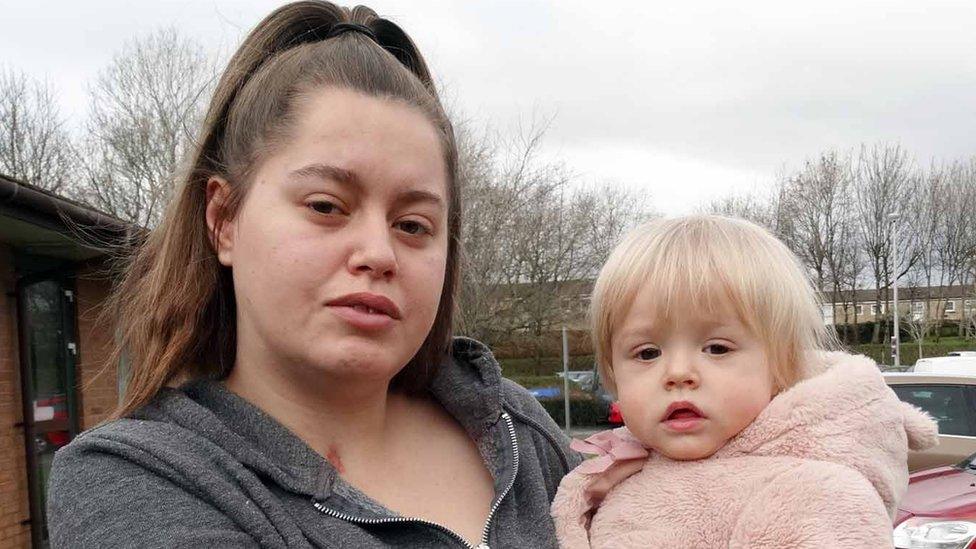Neath woman's struggle to get treatment for rare conditions
- Published
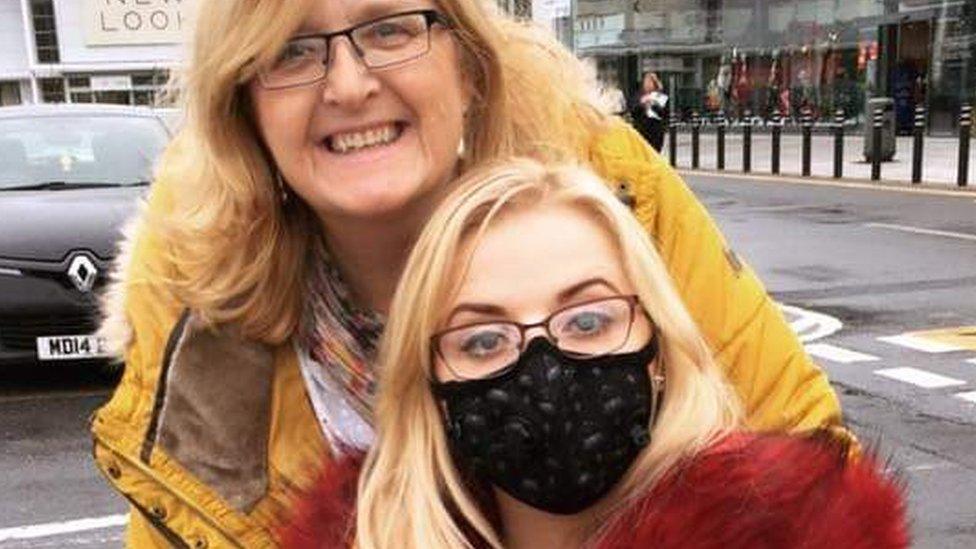
Hannah Evans, pictured with her mother Helen Harry, has a combination of rare conditions
Hannah Evans has three rare conditions and could go into anaphylactic shock at any moment.
The 28-year-old from Neath has mast cell activation disorder, a heart condition and a genetic condition which makes her limbs dislocate.
Her family fears a lack of expertise close to home could risk her life.
Swansea Bay University Health Board (SBUHB) said it was committed to meeting Mrs Evans's needs.
Mast cell activation disorder- when cells designed to protect the body, mutate and attack it - is currently incurable.
It affects Mrs Evans's immune system and increases the risk of anaphylactic shock, which can be fatal.
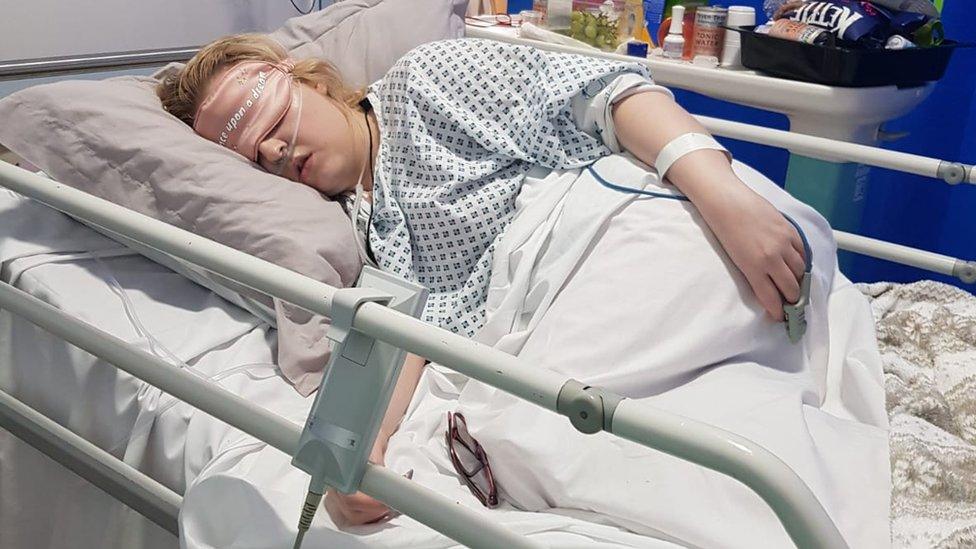
Hannah Evans needs 24-hour care
She also has a genetic condition affecting her joints and Postural Orthostatic Tachycardia Syndrome (PoTS), a heart condition which causes palpitations and fatigue.
This is alongside Ehlers Danlos Syndrome, a group of genetic connective tissue disorders, which can cause severe joint and muscle pain.
Her mother, Helen Harry, said: "If you fit in a box then you get the care you require, but Hannah doesn't fit in a box because her conditions are very rare and very complex."
Mrs Evans's family spent about £100,000 over 10 years on private treatment in London and her general care.
Crowdfunding helped her see a specialist in the United States, who put together a detailed care plan - but her family claims Mrs Evans's doctors at home are not following it.
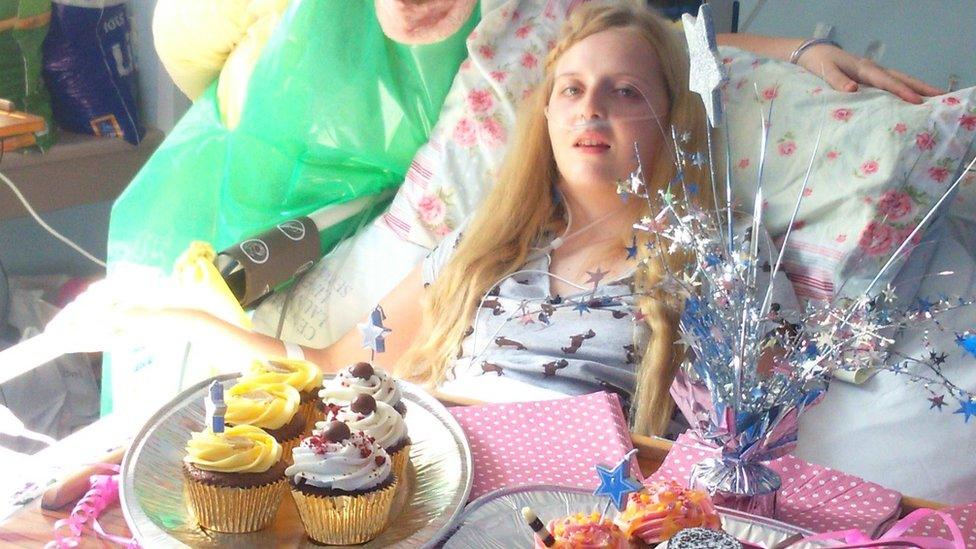
"Hannah has had no specialist consultants in Wales," Mrs Harry said.
"She's had some consultants more recently - most have been helpful - but they all say because her conditions are so complex, it's beyond their remit to safely look after her.
"It's terrifying. Hannah requires over 100 medications a day and constant IV treatment for 24 hours a day, seven days a week just to keep her alive."
Earlier this year Mrs Evans went to Singleton hospital in Swansea for a routine check-up but had to stay for a month where she was admitted to the high dependency unit.
Her family believed this happened because nobody at the hospital had the expert knowledge required to treat her conditions and fulfil her complex needs. They feared if the situation is not addressed, next time the outcome could be fatal.
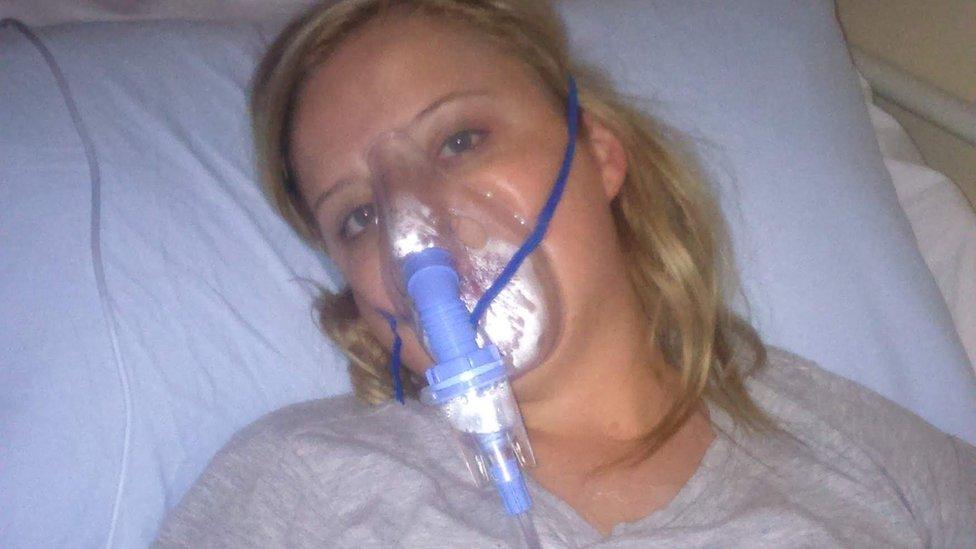
Richard Evans, executive director at SBUHB, said he was aware of the concerns and apologised for them.
"When patients present with complex care needs, it can pose a challenge in ensuring local provision is adequate," he said.
Mrs Evans's husband James said: "We need somebody who is engaged and willing to listen.
"Hannah's got a condition she didn't ask for, a condition she was born with, a condition which is progressive but we seem to be getting nowhere.
"I'm scared she's going to die and I shouldn't be having that thought at 32 years old."

'It's about raising awareness'
There are between 6,000 and 8,000 people in Wales living with a rare illness and for many it can be a challenge to get the care they need close to home.
In 2017, the Welsh Government affirmed its commitment to empowering individuals to ensure they can access the provision they require.
But the chair of Wales' Rare Disease Implementation Group, Dr Graham Shortland, said despite some improvements more progress needs to be made in assisting patients on to healthcare pathways.
Dr Shortland said: "Not infrequently with a rare disease, the patient will come to a physician knowing more about that disorder than perhaps the physician or surgeon.
"There has to be an openness and transparency in listening to the patient who may have found out something that is just not possible with the huge amount of scientific literature out there for the individual physician to pick up.
"It's hard work getting into the consciousness of a health board when they have many other pressures. How we can improve services for patients with rare diseases? It is very much about raising awareness."
Related topics
- Published22 February 2019
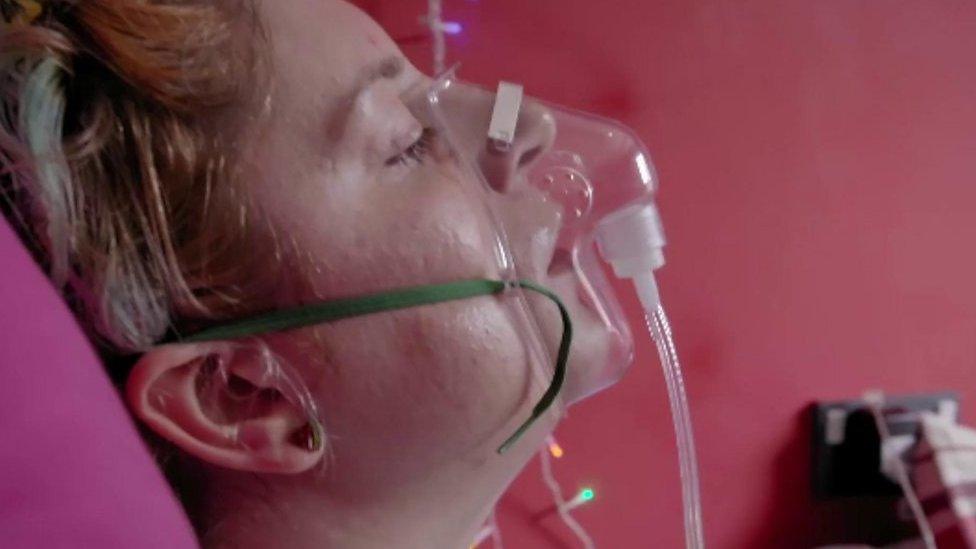
- Published6 March 2019

- Published21 January 2019
